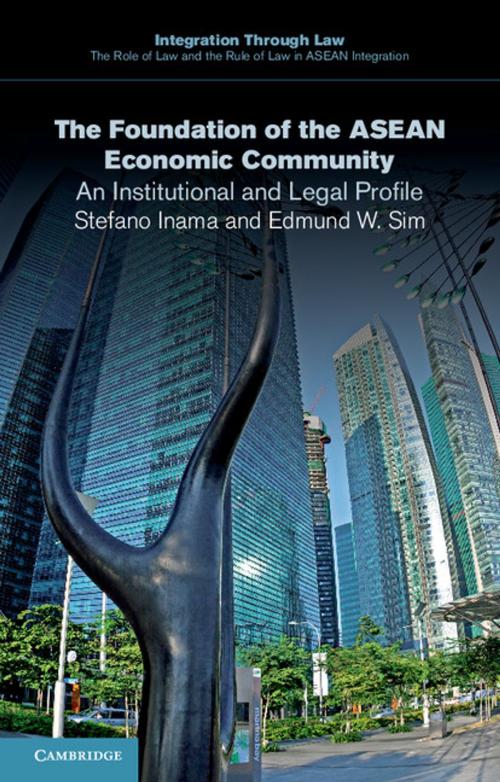The Foundation of the ASEAN Economic Community
An Institutional and Legal Profile
Nonfiction, Reference & Language, Law, International| Author: | Stefano Inama, Edmund W. Sim | ISBN: | 9781316290545 |
| Publisher: | Cambridge University Press | Publication: | April 16, 2015 |
| Imprint: | Cambridge University Press | Language: | English |
| Author: | Stefano Inama, Edmund W. Sim |
| ISBN: | 9781316290545 |
| Publisher: | Cambridge University Press |
| Publication: | April 16, 2015 |
| Imprint: | Cambridge University Press |
| Language: | English |
ASEAN has undertaken the complex task of creating a single economic entity for Southeast Asia by 2015 in the form of the ASEAN Economic Community (AEC), but without regulators or supranational institutions, its implementation has been an inconsistent process. Through comparisons with the EU and NAFTA, this book illustrates the shortcomings of the current system, enabling readers to understand both the potential of regional economic development in ASEAN and its foundational and institutional deficiencies. The authors' analysis of trade in goods and services, investment, and dispute resolution in the AEC indicates that without strong regional institutions, strong dispute resolution or a set of norms, full and effective implementation of the AEC is unlikely to result. The book offers clear solutions for the ASEAN institutions to help the AEC reach its full potential. Written by two leading practitioners, this insightful book will interest policymakers, students and researchers.
ASEAN has undertaken the complex task of creating a single economic entity for Southeast Asia by 2015 in the form of the ASEAN Economic Community (AEC), but without regulators or supranational institutions, its implementation has been an inconsistent process. Through comparisons with the EU and NAFTA, this book illustrates the shortcomings of the current system, enabling readers to understand both the potential of regional economic development in ASEAN and its foundational and institutional deficiencies. The authors' analysis of trade in goods and services, investment, and dispute resolution in the AEC indicates that without strong regional institutions, strong dispute resolution or a set of norms, full and effective implementation of the AEC is unlikely to result. The book offers clear solutions for the ASEAN institutions to help the AEC reach its full potential. Written by two leading practitioners, this insightful book will interest policymakers, students and researchers.















